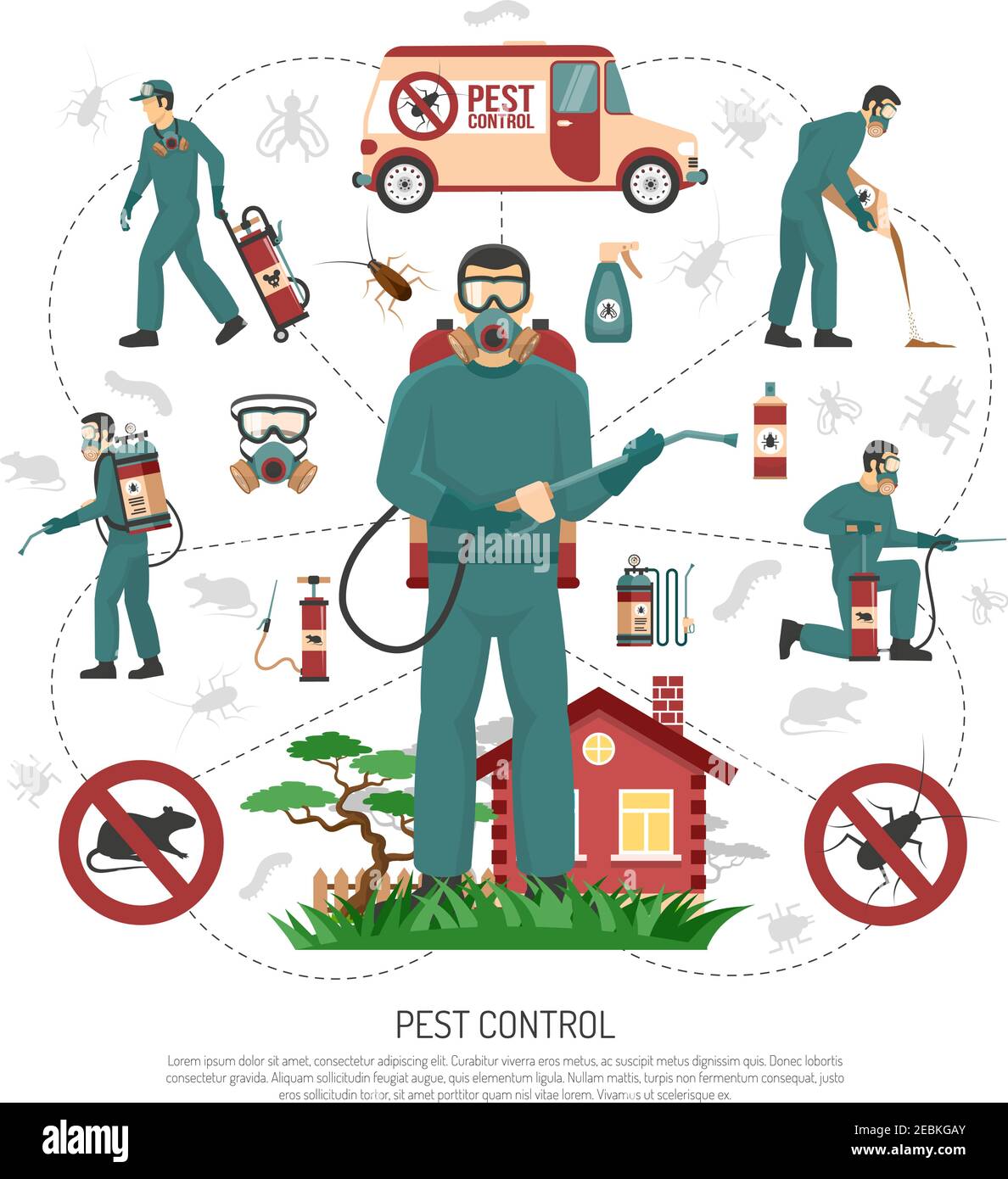Understanding the Different Approaches to Bug Control: A Comprehensive Guide

Natural Insect Control Techniques
Utilizing environment-friendly methods such as companion growing and biological pest control is essential for properly handling pests in farming settings. Friend planting involves expanding different plants in proximity to hinder insects, boost nutrient uptake, and enhance overall plant health.
Organic pest control entails introducing natural predators or virus to control pest populations. Ladybugs, as an example, prey on aphids, managing their numbers without the demand for chemical pesticides. One more instance is the use of Bacillus thuringiensis (Bt), a microorganism that targets specific insect bugs while being harmless to people, pets, and advantageous pests.
These environmentally friendly approaches not only minimize the dependence on synthetic pesticides yet also assist maintain biodiversity and soil health and wellness. By including natural insect control approaches into agricultural techniques, farmers can achieve sustainable bug monitoring while minimizing negative effect on the setting.

Chemical Parasite Control Solutions
Along with natural insect control techniques, the application of chemical parasite control solutions plays a significant function in successfully handling pest populaces in farming settings. Chemical parasite control remedies are formulated to target specific pests that may cause comprehensive damage to crops. These services typically consist of synthetic pesticides that are developed to eliminate insects rapidly and effectively.
One of the key advantages of chemical pest control solutions is their effectiveness in regulating parasite problems on a big range. Farmers can apply these services using various approaches such as splashing, fumigation, or seed treatment to shield their plants from dangerous bugs, weeds, and diseases. Additionally, chemical parasite control options are fairly easy to use and can supply rapid outcomes, aiding farmers protect their yields and decrease economic losses.
However, it is vital to utilize chemical parasite control remedies carefully to minimize potential adverse influences on the setting, non-target microorganisms, and human health. Proper application strategies, adherence to safety guidelines, and normal surveillance are important to guarantee the liable use of chemical parasite control solutions in farming techniques.
Biological Bug Control Approaches
Organic insect control comes close to utilize natural killers or virus to manage Check Out Your URL insect populaces in farming settings efficiently. This approach offers a environmentally friendly and sustainable service to pest monitoring, reducing the reliance on synthetic chemicals and lessening injury to the setting. One common biological control technique is the intro of all-natural enemies, such as ladybugs or parasitic wasps, to target certain bugs. These killers feed on the insects, assisting to manage their populaces normally - pest control clovis.
An additional organic control method entails making use of microorganisms like fungis, germs, or infections to contaminate and eliminate pests. Overall, biological pest control techniques supply a lasting and targeted option to pest management in farming.
Integrated Pest Administration (IPM)
Integrated Parasite Management (IPM) is a comprehensive technique that incorporates various bug control strategies to efficiently take care of and minimize pest populations in agricultural systems. IPM concentrates on long-term prevention of insects via a mix of biological, cultural, physical, and chemical control techniques. By incorporating these various strategies, IPM aims to decrease reliance on chemical pesticides, lessen ecological influence, and promote sustainable insect administration methods.
One trick facet of IPM is using organic controls such as all-natural killers, bloodsuckers, and virus to manage parasite populaces. This approach harnesses the power of nature to maintain a balance between pests and their natural enemies without triggering damage to the atmosphere.
Furthermore, IPM includes cultural methods like plant habitat, hygiene, and turning adjustment to produce undesirable conditions for insects and disrupt their life process. Physical controls such as catches, obstacles, and mulches are likewise used to stop pest infestations.
Mechanical and Physical Parasite Control Strategies
Using non-chemical techniques, such as mechanical and physical parasite control strategies, is a crucial facet of thorough bug management strategies, constructing upon the foundation of Integrated Parasite Administration's holistic strategy. Mechanical bug control involves making use of physical obstacles or traps to avoid insects from accessing and harming crops or structures. This approach can consist of methods like installing screens on windows, making use of row covers in agriculture, or using sticky catches to capture bugs.
Physical pest control techniques, on the other hand, emphasis on directly removing insects via physical ways. Using warm treatments to remove bed bugs or vacuuming up bugs like crawlers or ants can be efficient means to manage infestations without the usage of chemicals. By including these mechanical and physical bug control methods into an Integrated Insect Monitoring plan, experts and here people can lower reliance on official site pesticides while still successfully taking care of pest populations and reducing damages.
Conclusion

In addition to all-natural bug control techniques, the utilization of chemical parasite control services plays a significant duty in efficiently taking care of pest populaces in agricultural settings.One of the key benefits of chemical pest control remedies is their effectiveness in regulating insect problems on a large range.Integrated Insect Monitoring (IPM) is a detailed approach that integrates various bug control strategies to successfully take care of and reduce pest populaces in agricultural systems.Making use of non-chemical methods, such as mechanical and physical bug control techniques, is a critical aspect of thorough pest management techniques, building upon the structure of Integrated Parasite Management's alternative strategy. By incorporating these mechanical and physical bug control strategies into an Integrated Bug Management plan, experts and people can lower reliance on pesticides while still efficiently handling pest populaces and decreasing damages.